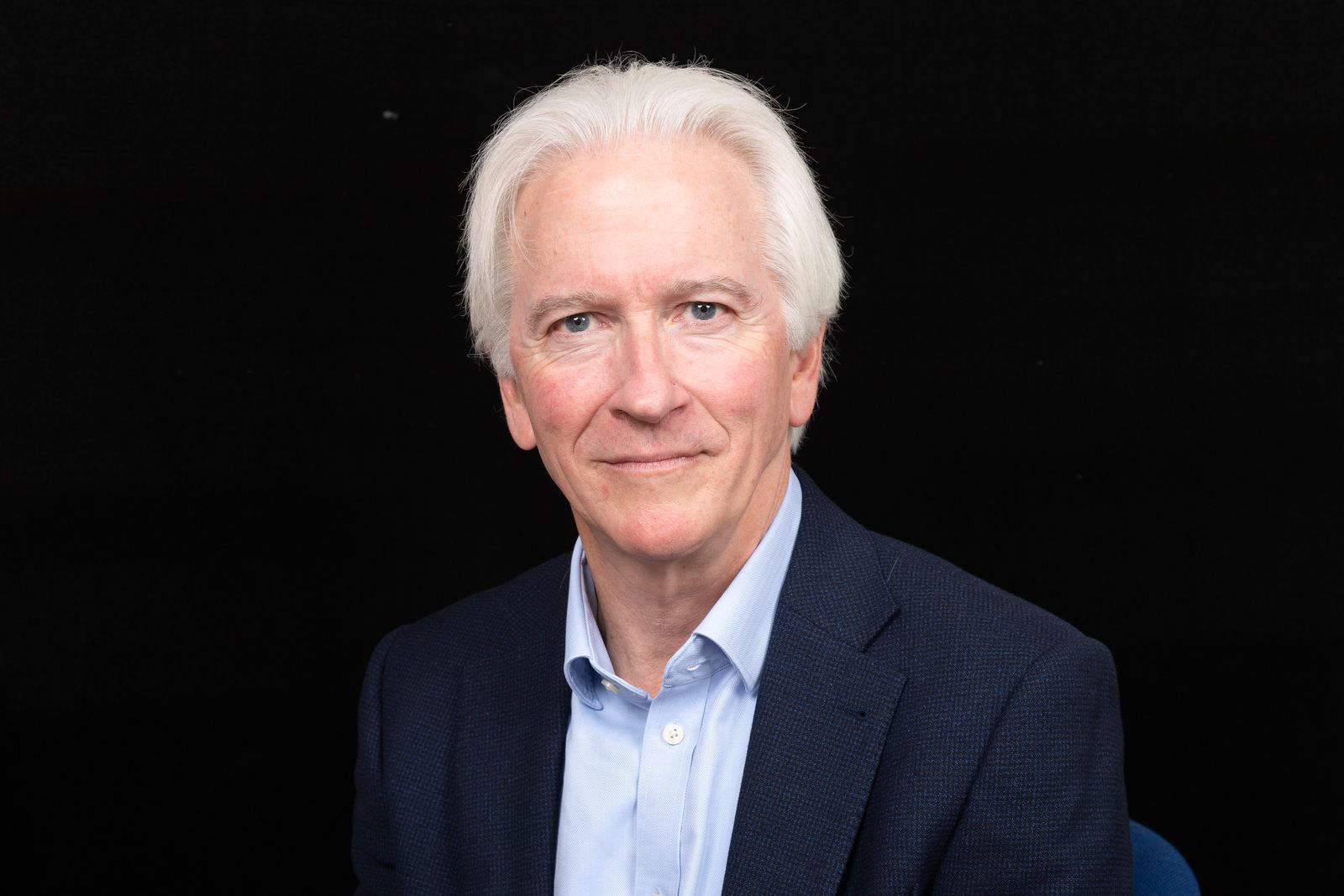Professor Eugene Rogan is a renowned scholar in Modern Middle Eastern History, serving as the Director of the Middle East Centre and a Fellow of St Antony's College at the University of Oxford. He authored The Arabs: A History—acclaimed by The Economist, The Financial Times, and The Atlantic Monthly as one of the best books of 2009—and his latest work, The Fall of the Ottomans: The Great War in the Middle East, 1914-1920, continues to contribute significantly to the field.
You have written extensively about the Ottoman Empire in The Fall of the Ottomans and Frontiers of the State in Late Ottoman Empire as well as more generally about Arab history in The Arabs. Where do you see the Israeli-Palestinian conflict fitting into this narrative?
Since 1948, and indeed well before, the conflict between the Zionist movement in Palestine and the emerging state of Israel was to define the Middle East as a zone of conflict. What was an Arab-Israeli conflict through the 1970s has, since the Camp David Accords, developed into a much more focused conflict between Israel and Palestine. There have been exceptions: Israel has fought wars in southern Lebanon against Hezbollah and has had small engagements with Syria. However, if you want to get to the heart of the unresolved, it really is Israel-Palestine. We can talk about a conflict that has endured unresolved since 1948 and continues to define the politics of the region and its place in the world.
You mention 1948—what do you see as the starting point of the Israel-Palestine conflict, and how have early events like the creation of modern Zionism, the Balfour Declaration, or the establishment of the state of Israel in 1948 shaped its course?
Israel did not emerge from a vacuum in 1948. The 1917 Balfour Declaration is a really important point. Before 1917, Zionism was a very unrealistic nationalism, because the demography of the movement was in diaspora. Nationalism [is usually] based on the idea that the demography [is based] on a geography, [a] struggle for self-determination within the boundaries of a certain territory of land. Zionism was an appeal to Jews across four continents, and it took the support of a major power to take that idea from romantic and idealistic to something you could hope to act on. By gaining the direct support of the British government—not for the Zionist movement, not for the creation of a Jewish state, but at the very least for the creation of a Jewish national home—Zionism [was given] a political basis on which to begin to realize that dream of statehood.
More specifically, how did British policies and actions during the mandate period contribute to these growing tensions between Israeli and Arab populations?
I believe that Britain saw the Zionist movement as a partner for managing a new mandate and Palestine—a territory Britain had not designated as [a] desired addition to the British Empire until well into World War I. In my view, [this was] a reflection of [Britain’s] growing awareness of the vulnerability of the Suez Canal from Palestine, because Palestine was the last water source you had before the bone-dry Sinai Peninsula. Twice [during] World War I, the Ottomans had managed to strike the Suez Canal from Palestine across Sinai. It seems very clear deductively that the British came to recognize the strategic importance of Palestine but knew they would face resistance from the indigenous population to them coming in as a colonial power. They had hoped, in partnership with the Zionist movement, to have a community in Palestine that would work with their administration, and they envisaged a compact minority that [would] be dependent and reliable.
The closest [evidence] I can get to a smoking gun on that [is from] 1939. In a white paper to end the Arab Revolt of 1936 to [1939], Britain shows its head and its [willingness] to allow immigration, to allow the Jewish settlers in Palestine to increase by 75,000 over five years, reach[ing] 35 percent of the total population. Britain [then] promised six years and five years after that to grant independence to Palestine under majority rule, [which] tells you that Britain had never intended for [the Zionists] to achieve statehood. [Britain] didn't want to deal with nationalism in any form, let alone Jewish nationalism. But, [Britain was] hoping that the [Jewish community] would be for British rule in Palestine [what] the Maronite community was for French rule in Lebanon.
Britain was never really pro-Zionist. It never really felt [pro-]Arab. It was trying to secure a strategic territory for [its] empire and to manage that contested space. [The British] hoped they could do so in a partnership with a compact majority of Jews in Palestine. Britain was acting in its imperial self-interest rather than to promote the national idea of the Jewish community. In the process, [it] set in motion [the] 1937 Peel Commission, [in which] the British declared a conflict between rival and incompatible nationalisms: Jewish and Palestinian. They were not able to manage what they set in motion, [which] would lead to conflict, ultimately drive Britain from Palestine, and leave it to the Palestinian Arabs and Jews to fight for land.
Beyond Britain, how have shifting international alliances and geopolitical interests influenced the Israel-Palestine conflict from its inception to the present day?
James Barr has written a book about the interwar years and Anglo-French colonial rivalries in the Middle East called A Line in the Sand. He makes the argument that during World War II, Britain, along with Free French forces, drove the [French] Vichy out of Syria and Lebanon to deny [them] access to the Eastern Mediterranean. At that time, the Free French were willing to promise independence to Syria and Lebanon. Britain agreed to serve as [a] guarantor of that promise. All of that so far sounds congenial, but France had no more interest in leaving Syria and Lebanon than Britain did in leaving Palestine.
Yet, when the Second World War came to an end, the United Nations was convening its first meeting in San Francisco, inviting nations to sign on as charter members. Lebanon and Syria wanted to be there. France actively sought to prevent them [from attending]. And when the Lebanese and Syrians called on Britain to fulfill its guarantee of their independence, [it] did. [This alienated] the French, who at that point began to support the Jewish movement in Palestine as a way to put pressure on Britain.
There was a very diabolical chess game being played by the dying European powers. Coming out of World War II, both [France and Britain] were facing a future of decolonization, a reduction from global imperial powers to compact European powers with quite a different status in the world. They weren't ready for that in the 1940s. [Besides Britain,] the only other power that was really influential in Palestine after 1945 [was] France. France’s alliance with the Yishuv [Jews living in Palestine before statehood] and with the young state of Israel would provide a great deal of Israel's advanced military hardware and provide the origin of Israel's nuclear deterrent. We often forget that this support was not a gift of the American-Israeli friendship but of the France-Israel friendship.
How do historical narratives and collective memories of events like the Nakba and the establishment of Israeli settlements in the West Bank shape the identities and political stances of Israelis and Palestinians today?
On the one hand, there has been a tendency—since the creation of Israel and then the subsequent occupation of East Jerusalem, the West Bank, and the Gaza Strip in [1967]—to try and move beyond history to find a diplomatic resolution. But in the end, no progress has ever been achieved without acknowledging the historic basis of Israeli and Palestinian claims. [How] these two parties have, in the past, undermined each other [is] usually brought up as justification for either not engaging in negotiations or trying to offer less.
From the Palestinian perspective, since the Oslo moment when [Yasser] Arafat accepted Israel within the 1949 armistice boundaries, the Palestinians felt that they had conceded all they could [while] still being able to make a viable Palestinian state in what remained. This meant a division of historic Palestine: 78 percent to Israel [and] 22 percent to Palestinian national aspirations.
In a sense, the measures taken by Israel since the occupation of East Jerusalem, the West Bank, and Gaza in particular have been aimed at whittling down that 22 percent in ways that the Palestinians have constantly fought against. The first measure was to annex East Jerusalem. This is not something that has been recognized by most of the international community, and Palestinians continue to demand East Jerusalem as the capital of their future state. Settlements followed slowly, but starting in the 1970s, particularly under a Likud government after 1977, right-wing parties in government based their aspirations to extend Israel into Judea and Samaria (as they referred to the West Bank) [on] settlement.
While we might blame the genesis of settlement on right-wing Israeli parties, we have to acknowledge that [the] Labor [Party] was as active in extending and promoting settlements as Likud ever has been, and since [the Labor Party] was [established in 1968], the creation of settlements has only accelerated. Historians often judge that the settlement movement undid the gains of the Oslo Accords. Settlements, being a continued land grab at the expense of realizing Palestinian statehood, took away confidence on the Palestinian side that they could achieve their aims through diplomacy. This gave rise to the First and then the Second Intifada, and the memory of the violence of the Second Intifada [in particular] fuels the Israeli narrative that there is no partner in peace, that the Palestinians will never accept [them], and that the history of violence demonstrates that [Palestinians] will not stop until they've reclaimed all of Palestine.
Therefore, history gets weaponized in these ways, and you can see how both Palestinians and Israelis argue that, because of the actions of the other—whether it's settlements extending Jewish presence into territories where Palestinians aspire to create their state or Israelis saying that the violence [extends] into the very heartlands of Israel inside the Green Line—each blames the other for recent history that has denied a peaceful resolution of this, the oldest conflict in the Middle East.
Looking at these histories and contemporary realities, what potential pathways do you see for resolving the conflicts?
When I go to Israel, I don't drop into Palestine while I'm in the neighborhood. I only go to Palestine when I go to Palestine. My experience when I go to Israel is [that] I stay in Israel. If you're in Tel Aviv, you see what Israel could be in terms of a liberal, diverse, modern, cultured society without conflict. You go to Jerusalem, and you just feel the tensions [surrounding] the contested nature of holy spaces in that city with another layer of Christian pilgrims who don't have a dog in the Palestinian-Israeli fight but add to the sense of religious excitement that makes Jerusalem a very stressful place to be in. When you go into Palestine, beyond East Jerusalem, into Ramallah or to Nablus, you are every inch of the way through that landscape confronted by the occupation. What I come away with after every visit to Palestine is [that] the occupation is unsustainable. There is no way any free person would ever agree to live [under] those conditions. I come away with a violent sense of how unsustainable life under that occupation would be.
That's the West Bank. The Gaza Strip, from which Hamas broke out on [October 7, 2023], is surrounded by a high-tech fence right around the whole perimeter, with motion-activated machine guns to shoot anybody [who comes] to the fence. [A] person who lives in [a society like the United States or European Union] can imagine a situation [in which] we find motion-activated lights a little intrusive.
If you want to know a way forward for peace between Palestine and Israel, I don't see any other way besides [two states]. I've heard all the arguments [for a] great binational state. I agree that [it] would be an ideal resolution, one land for two peoples. [But] nationalism will always get in the way. That [formula] will only result in blood. I am a two-stater, and I can see two states. By working with facts on the ground, you don't need to change [the boundaries] because most of the international community recognizes the Green Line of [June 5, 1967]. So [the] Gaza Strip, East Jerusalem, [and the] West Bank [are] Palestinian sovereign territory.
Instead of [boundaries] being defined by partition walls, by barbed wire fences, by motion-activated machine guns, [they should] be defined by the rule of law. If you cross the boundary, from here to that side, you go from Israeli to Palestinian jurisdiction the same way as when you cross the Washington Bridge, you go from New York to New Jersey jurisdiction. It's not violent. You can imagine that [in] Europe; it's Benelux, you know—Belgium, the Netherlands, Luxembourg. And then from that, you can begin to address everything. All Palestinians will be citizens of Palestine, but refugees in Lebanon and Syria who [have] been excluded from both Palestine and Israel since 1948 [must also] be part of the solution.
The settlements—what do you do with them? If [you withdrew] all of [the] Israeli soldiers from the West Bank out of respect for the sovereignty of Palestine, [you would] start empowering the worst of the abuses of the settler communities who know they can literally get away with murder under the protection of the [Israel Defense Forces] (IDF). No IDF [means that] under Palestinian law, settlers would have to behave very differently. Or if they [were to break] the law, [it would] be a Palestinian cop [who arrests] them. They [would] sit in [a] Palestinian jail, [and] they [would] go before a Palestinian judge. This [would be] a terrible disincentive for the kinds of settler violence that [have] become all too regular in recent years, particularly since [the] latest Israeli government with its strong settler movement. And I think that for every Israeli settler who chooses to be an expatriate in Palestine, there should be a right of return for Palestinians inside Israel, which [would] be a real deterrent to the Israeli government [against encouraging] settlers. If you don't want to absorb [300,000] or 400,000 Palestinians in Israel proper, then don't encourage [300,000] or 400,000 Israelis to be in settlements, and as Israelis vacate those settlements, preferring to live in Israel, you'll have houses to accommodate more Palestinians. There is a way one can imagine providing a peaceful, better future for Israelis and Palestinians to live together in this very small geography. Even today, as we speak, Palestinian Arabs—whether they are citizens of Israel or in the West Bank, Gaza Strip, or East Jerusalem—[number] about 7 million, and Israeli Jews [number] about 7 million. They are more or less at parity.
If anything positive can come from the horror of the atrocious attacks of [October 7, 2023] and of this murderous war in Gaza, it will be the recognition that this will not be resolved by killing each other; it will be resolved by living with each other, and there is a way to do it.
Black spoke with Rogan on June 21st, 2024. This interview has been lightly edited for length and clarity.





